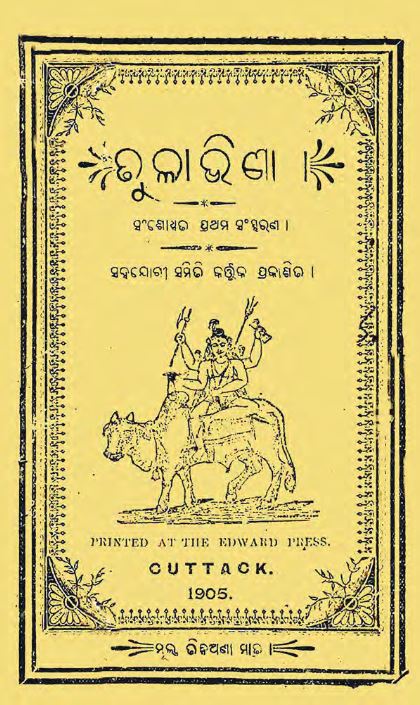In the panorama of Indian literature, certain works stand out not only for their artistic merit but also for their profound emotional resonance and philosophical depth. One such exemplary piece is “Tulabhina,” a poetry book penned by the illustrious Jagannath Das and published in 1905. This collection not only showcases the poetic genius of Das, a luminary of Odia literature, but it also serves as a mirror reflecting the intricate tapestry of human emotions, struggles, and philosophical musings that resonate through time.
Tulabhina, which can be translated to mean “without balance,” is a profound exploration of the human condition, tackling themes of love, longing, loss, and the search for identity. Jagannath Das, deeply influenced by the socio-political and emotional currents of his time, captures the essence of a collective yearning—a struggle for balance amidst life’s turmoil. The title itself signifies a poignant dichotomy; it suggests a delicate equilibrium that is constantly disrupted by the weight of desires, aspirations, and inner turmoil.
One of the remarkable features of “Tulabhina” is its lyrical beauty. Das employs a rich vocabulary that flows like a river, meandering through undulating hills of emotion. His use of vivid imagery and metaphors creates a sensory experience for the reader, allowing them to not just read the poems but to feel them viscerally. The verses breathe life into the complexity of emotions, drawing the reader into the intimate world of the poet’s reflections and experiences.
The central theme of love is treated with both reverence and melancholy in “Tulabhina.” Das explores the multifaceted nature of love—its ecstasy and anguish, its transient joys, and its lasting scars. He allows the reader to experience the rawness of unrequited love and the warmth of tender affection, all while contemplating the impermanence that accompanies these feelings. Through his deft craftsmanship, Das elevates love to a universal experience, transcending cultural and temporal boundaries.
Additionally, Das’s exploration of identity and self-discovery resonates deeply in “Tulabhina.” He dives into the questions of existence and meaning, contemplating the individual’s place within the grand tapestry of life. The poet’s introspective nature invites readers to embark on their journey of self-exploration, pondering the many facets of their existence and the quest for balance in an often chaotic world.
The socio-political context of early 20th-century India looms large in the background of “Tulabhina.” Jagannath Das’s work is imbued with a sense of nationalism and cultural pride. His poetry serves as a subtle yet powerful commentary on the socio-economic conditions of his time, reflecting the complexity of being an artist and a thinker in a transforming society. The ebb and flow of the nation’s struggle for independence can be felt in the undercurrents of his verses, urging readers to embrace their roots while envisioning a brighter future.
In conclusion, “Tulabhina” by Jagannath Das is a timeless piece of literature that encapsulates the human experience in its rawest and most beautiful forms. Through lyrical brilliance, poignant themes, and an exploration of identity and love, Das invites readers to engage with their emotions and ponder the deeper questions of life. As we traverse through the pages of “Tulabhina,” we find not only the voice of a poet but also the reflections of our own hearts, making this 1905 publication a classic that continues to resonate with readers today.
Books Info
| Books name | Tulabhina /ତୁଳା ଭିଣା |
| Author | Jagannath Das |
| No Of pages | 33 |
| Publisher | Edwad Press |
| Publication | 1905 |
| Printed At | NA |
| Distributor | NA |

